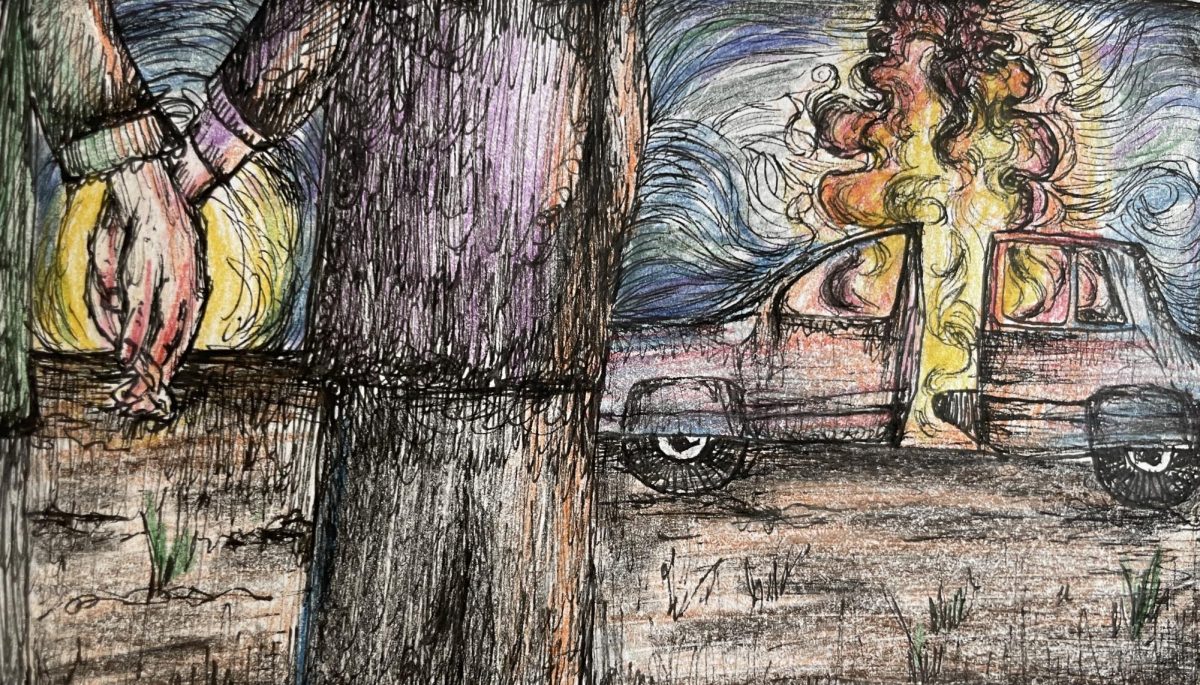Happiness feels good.
When we feel discouraged, we are constantly told to maintain hope for the future and are assured that everything will work out in the end.
Realistically, however, it isn’t always useful to see the world through rose-colored glasses.
Not only does the media constantly showcase the crumbling state of the world, reminding us of the latest tragedies in two-minute increments, but as college students we also feel the stress and pressure that is a result of countless assignments, deadlines and responsibilities.
With all these factors, an individual may feel sadness, guilt or even anger.
Individuals tend to place judgment on these negative feelings and label them as bad or inappropriate, according to an April 21 New York Times article.
It’s time to stop shying away from feeling darker emotions and thoughts. We must accept and admire these sentiments within us, even using them to strengthen humanity.
The darker side of human emotion is represented in the concept of the Jungian Shadow.
Psychologist Carl Jung labels internal human feelings such as guilt and disgust as existing in “the Shadow.” One’s shadow self is composed of emotions and thoughts that are generally unacceptable in society according to an Aug. 2015 article by The Society of Analytical Psychology.
The shadow self, in its deepest definition, is the part of us that we have no wish to recognize or align ourselves with, according to the article.
Though the shadow self is obviously not an anatomical part of the body, it gives residence to the part of us with which we feel the need to mask unpleasant emotions.
Instead of expressing these emotions, we cover them up with smiles and distract ourselves so that we “feel better.”
Though we repress and reject the parts of our identity that are labeled as our shadow self, they are still a part of our unconscious mind and remain a core piece of our sense of self, according to an Aug. 1 Cleveland Clinic article.
Our shadow self also represents the parts of our personality that we perceive as our weaknesses and how we mask them. This could look like being extremely generous due to the fear of possessing selfish tendencies, according to the Cleveland Clinic article.
To think that each of us possess internal doubts and conflicts within us that we refuse to acknowledge should be reason enough for humanity as a whole to recognize that negative-feeling emotions are a completely normal part of life.
Attempting to ignore this common darkness that exists in all of us wastes an opportunity for connection and support, something that this world truly needs.
The complexities of our inner dialogue, fears and unpleasant emotions don’t have to be something that is shameful.
Sometimes, there is little value in covering grief, anger and sadness by attempting to distract ourselves with funny TV shows, scrolling endlessly on TikTok or working to “shake it off” instead of validating our feelings and thoughts, no matter how scary they are.
Toxic positivity dismisses negative emotions rather than affirming them, often being perceived as lacking empathy, according to a Sept. 8, 2021 UW Medicine article.
Though toxic positivity doesn’t usually come from a place of intentional harm, it can make individuals feel like they are being “shut down” whenever they discuss negative emotions, according to the UW Medicine article.
By labeling certain emotions as bad, both the negative emotions themselves and the judgments we have against them compile, and result in an increased risk of depression and anxiety, according to the New York Times article.
We can grow from sitting with unpleasant emotions or sharing our feelings, even if they don’t fit what society pins as acceptable.
The adverse experiences and struggles that we undergo allow us to exhibit more authentic compassion and effective empathy tendencies, according to a 2016 American Psychological Association study.
In other words, individual or even community-wide struggles increase our strength in connecting with others.
It is no surprise that we all have a tangled sense of negativity within us.
Awful events of injustice, chaos and horrible disasters seem to be never-ending and feel completely out of our individual control. It is more than normal to feel the heaviness of hopelessness and grief.
Happiness is valid. Anger, sadness and pessimism that contain no optimistic or hopeful rebuttal are just as valid.
Not every part of ourselves will fit the pretty picture aligned with being eternally grateful or living our lives in a way that emphasizes fulfillment and abundance.
Repressing the negative and doubtful parts of ourselves won’t produce connections and change in the same way as acknowledging the universal struggles that are part of the human experience.
It is inspiring to see Gen Z talk about negative emotions and mental health in general.
In describing their current health and well-being, only 15% of Gen Z aged 18-26 reported having “excellent” mental health, according to a Sept. 14 CNN article.
It is so validating to know that others are going through similar struggles.
Internal honesty and honesty with others regarding emotions, both positive and negative, could bring much constructive conversation and connection.
There’s no shame in our complicated or negative emotions. Feeling and accepting them could truly bring so much light.









